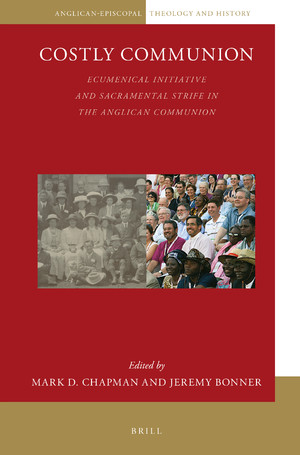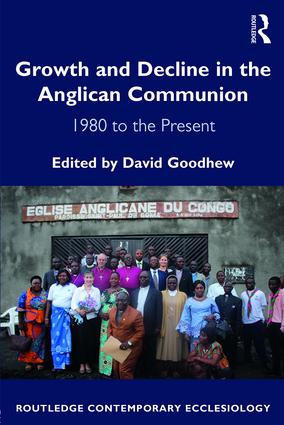Quincy Appeal Affirms Lower Court Decision
The Fourth District of the Illinois Appellate Court has just upheld Judge Ortbal's ruling in The Diocese of Quincy vs. The Episcopal Church. In their ruling, the justices commend the lower court for its "detailed order," and express concurrence with the view that the Dennis Canon may impose restrictions on a Parish's ability to dispose of its property but impose no comparable restriction on the freedom of a Diocese. "A review of the evidence presented in this case, including testimony from Dr. Mullin, the Church's own witness, does not clearly demonstrate the existence of a hierarchical relationship between the Diocese and the Church," declares the court. "Indeed, the Church's authority is not readily ascertainable without an impermissible investigation into matters of polity." (Para. 48)
¶ 19 During the three-week trial that followed, 11 witnesses testified. We will recount only what is necessary to resolve the issues raised on appeal.
¶ 20 Dr. Robert Bruce Mullin testified for the Church as an expert regarding its structure and history. Mullin opined the Church was hierarchical. When asked the basis for his opinion, Mullin responded, "Because it is self-evident from evidence itself, you know, that all you have to do is look at the structure of the Episcopal Church and history of the Episcopal Church and it is a hierarchical church. No one is going to question the Episcopal Church is hierarchical before 2008." Mullin then testified in detail regarding the history of the Church.
¶ 21 However, on cross-examination, Mullin agreed his opinion the Church is hierarchical is not expressed in the Church's constitution. He also agreed neither the Church's constitution nor its canons specifically reference a three-tiered form of governance. Mullin further agreed the Church's constitution and canons do not prevent a diocese from withdrawing from the Church. Mullin was unaware of any attempt under Illinois law to remove the members of the Trustees from their offices. While Mullin testified the members of the Diocese forfeited their offices by leaving the Church, he could not point to the "magic moment" when they did so. He also agreed the Church cannot compel a diocese to contribute any money. Instead, the Church suggests what should be contributed. Historically, the lack of support from the dioceses has been a "frequent problem." Mullin also admitted the Church's constitution and canons do not provide for the discipline of a diocese.
¶ 22 Dr. Jeremy Bonner, a specialist in Church history, testified for the Diocese. According to Bonner's testimony, the Church is "an extremely decentralized association" of state churches or dioceses. The Church's constitution lacks a supremacy clause and a mechanism to enforce its canons or legislation against a diocese. According to Bonner, the most striking characteristic of the Church is its lack of any supreme judiciary. During his testimony, the following colloquy took place:
"Q. In your opinion, can a religious organization which lacks a constitutionally established executive and judicial function which has no language of supremacy in its constitution function as an hierarchical church?
A. I do not see how.
Q. How can [the Church] then enforce its canons against a member diocese?
A. It can't. It can express its displeasure and can exert moral outrage and attempt to persuade its dioceses of the need to change, but recent disputes have shown the limitations of that strategy."
¶ 23 Bonner also testified he was unaware of any canon that purports to give the Church authority to assert control over a diocese's property. He explained while the so-called "Dennis Canon" (Title I.7.4) purports to declare a trust in parish property to restrict a parish's ability to dispose of it, that canon does not apply to property owned by a diocese.










